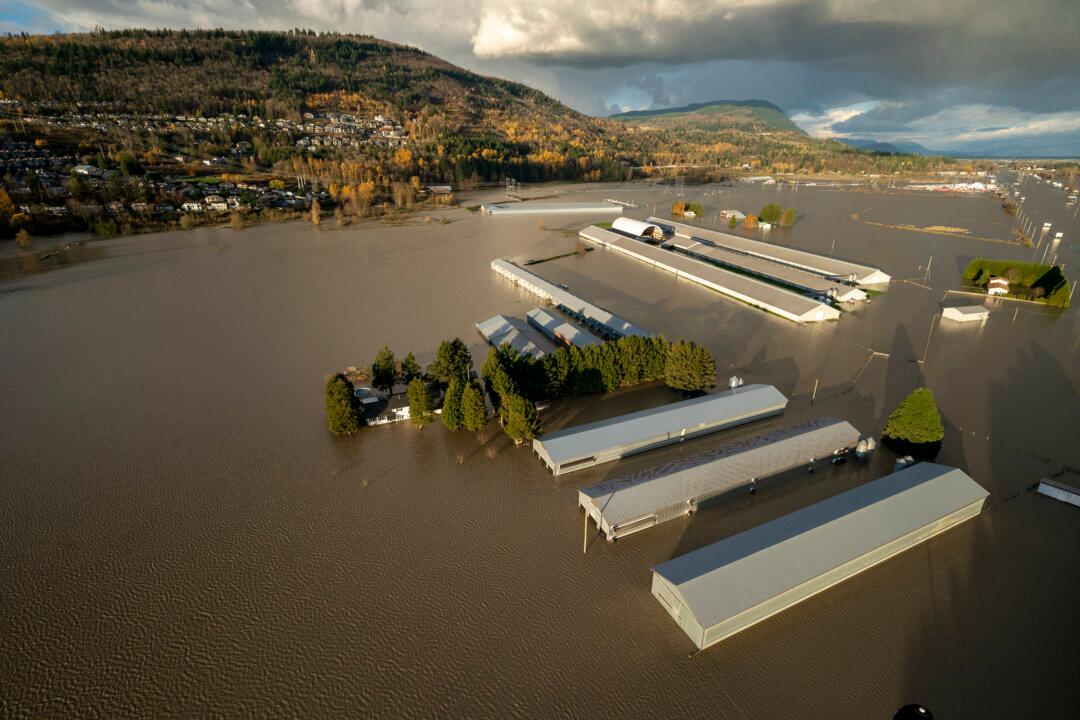British Columbians are being warned to brace themselves for more “heavy rain, strong winds, and freezing temperatures” that will hit the province’s north and south coasts over the weekend, lasting until Tuesday, Nov. 23.
“Environment Canada has issued a new winter storm advisory for the north coast, and we’re expecting heavy precipitation and wind. The storm is forecast to move south; starting Sunday, rain will reach heavily impacted areas in the Fraser Valley,” said the B.C. government on Twitter on Saturday.





